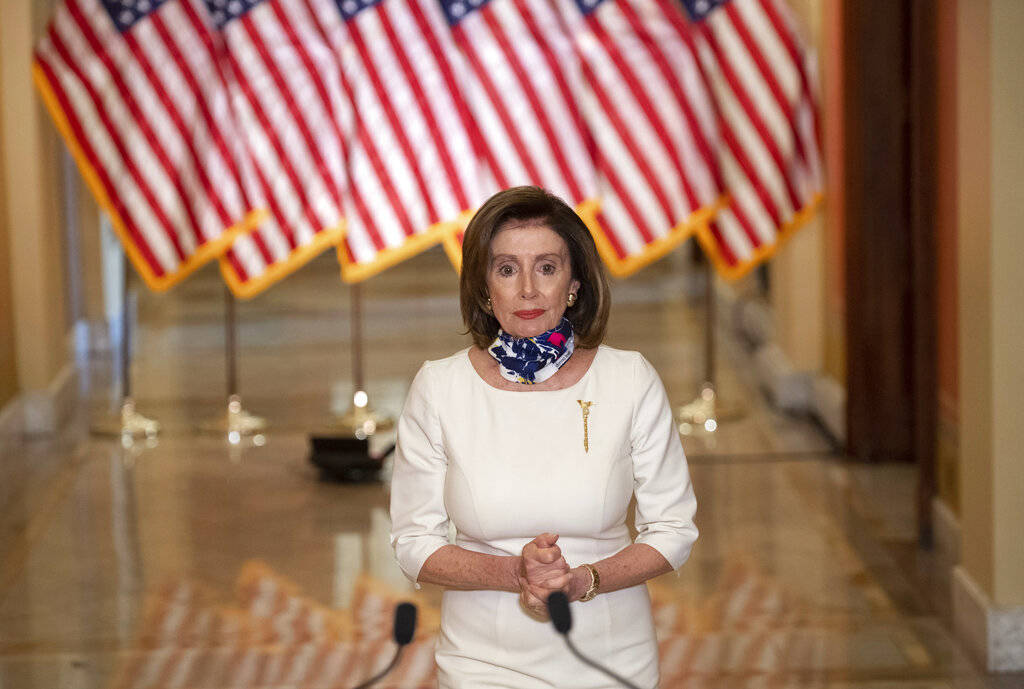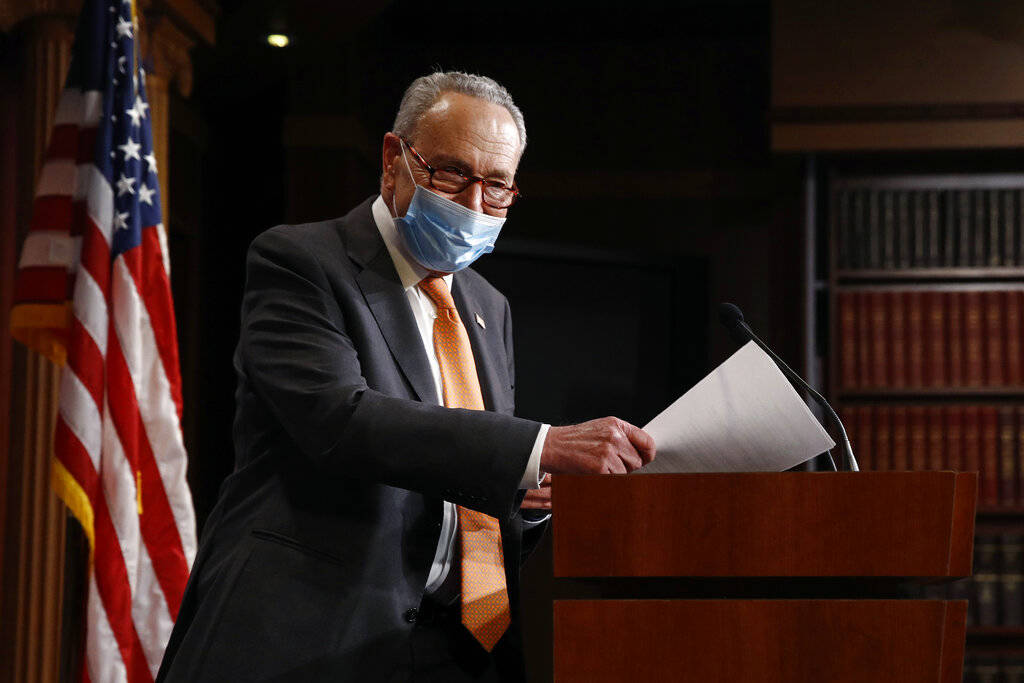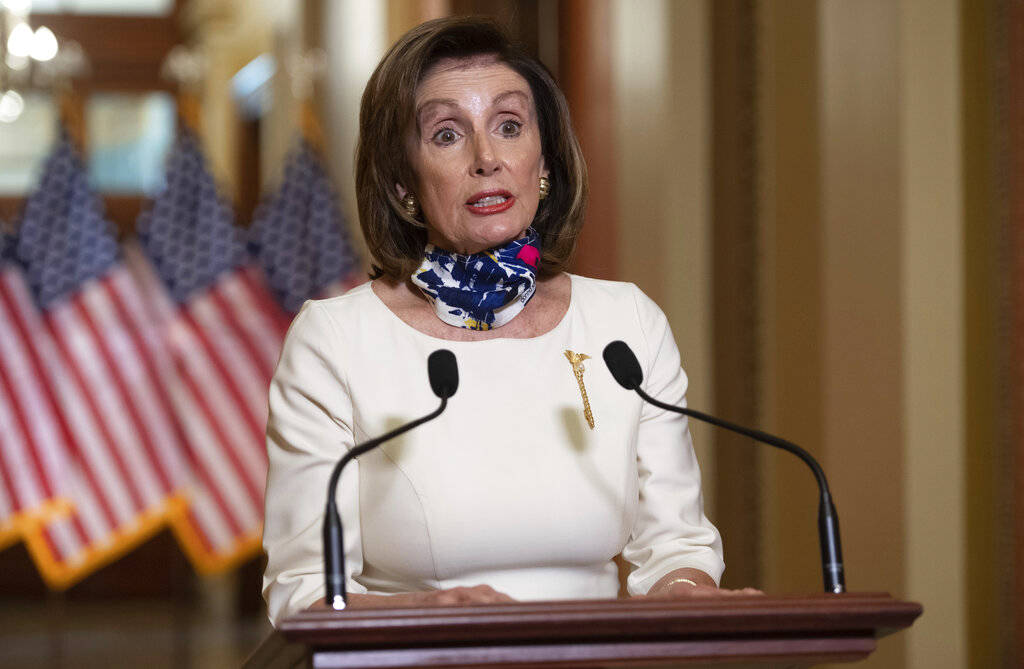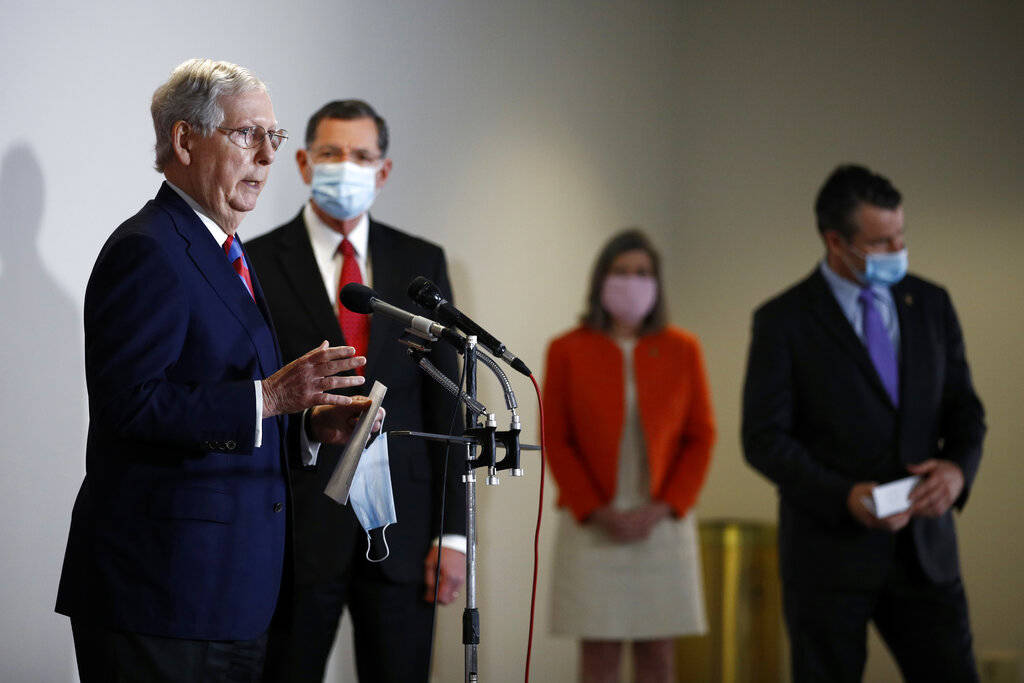Pelosi unveils $3T coronavirus package
WASHINGTON — House Speaker Nancy Pelosi unveiled a $3 trillion coronavirus relief package, chock-full of spending for states, cities, tribal government and individual families.
The bill is likely to face opposition from Republicans over the whopping price tag.
Pelosi, D-Calif., rolled out the legislation on Capitol Hill while House lawmakers remained at home but could be called to return for a vote on the sweeping legislative package by week’s end.
In announcing the bill, Pelosi said hearts were broken over deaths from the virus, the millions of Americans left unemployed, and empathy for “our heroes” who have worked through the outbreak to help others.
She said House Democrats were presenting a plan to reopen the economy safely, with testing and tracing, and providing Americans with the means to help stimulate economic growth.
“We all know we must put more money in the pockets of more Americans,” she said.
The bill would provide $1 trillion for state, local and tribal governments, additional direct payments of $1,200 per family member and up to $6,000 per family, $200 billion in hazard pay for those on the front lines of the pandemic and $75 billion for testing, tracing and isolation efforts.
Other measures in the bill include a 15 percent increase in nutritional benefits and extending weekly unemployment benefits of $600 until January.
Democrat Rep. Dina Titus, the dean of the Nevada congressional delegation, called the bill “a bold response to this pandemic.”
Formulas in the relief bill written by Democrats, including Rep. Steven Horsford, D-Nev., would be based on Census Bureau data and would allocate an estimated $2.64 billion to Nevada and roughly $1.76 billion to Nevada counties and cities.
Horsford said Nevada is one of the hardest hit states. “I’ve been advocating day and night to congressional leadership and within the Ways and Means Committee to ensure that my state receives the funding it needs in any future coronavirus response package,” Horsford said.
But Senate Majority Leader Mitch McConnell, R-Ky., remained cool to the idea that the Republican-controlled Senate would pass a bill with such a large price tag, noting that more than $3 trillion in spending on coronavirus relief has already been tacked onto the national debt.
The bill is likely to enjoy support among most Senate Democrats, including liberal lawmakers such as Sen. Bernie Sanders, I-Vt., and Sen. Kamala Harris, D-Calif., who introduced a bill that would pay individuals $2,000 per month in direct aid until the pandemic eases.
The Internal Revenue Service has already distributed payments to 130 million people totaling more than $200 billion in the first round of economic impact payments. That included 1.2 million Nevadans and more than $2.1 billion.
Still, many eligible Nevadans have not received their payments, or only partial payments, prompting the state’s congressional delegation, led by Sen. Catherine Cortez Masto, D-Nev., to seek immediate action by the Treasury Department to expedite those checks to those hardest hit by the economic fallout.
Contact Gary Martin at gmartin@reviewjournal.com or 202-622-7390. Follow @garymartindc on Twitter.














































